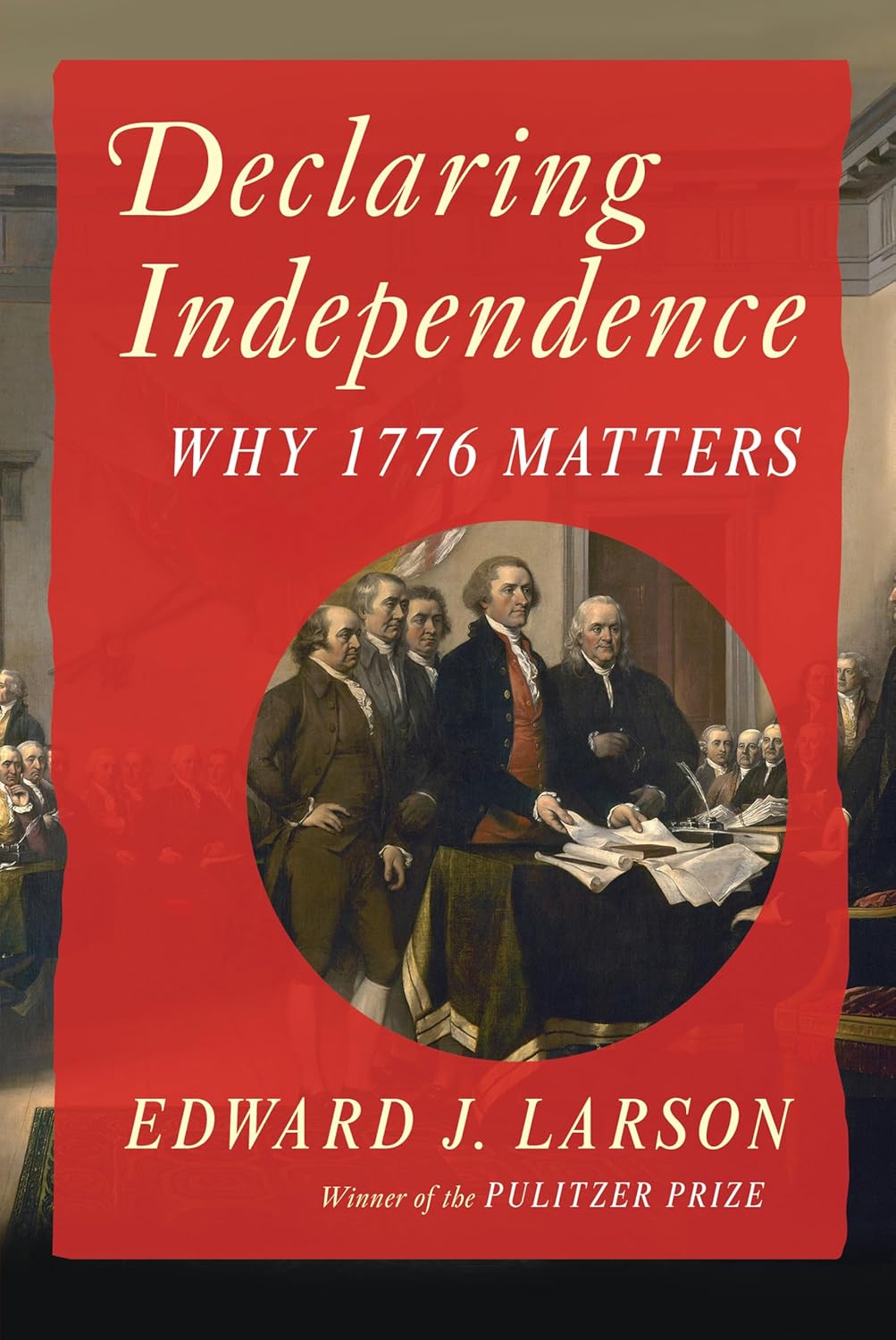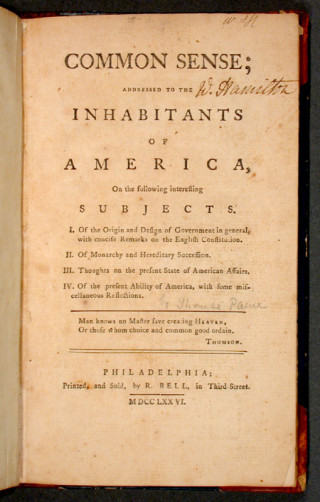Thomas Jefferson captured the Patriot view in his 1774 pamphlet, A Summary View of the Rights of British America. “Can any one reason be assigned why 160,000 electors in the island of Great Britain should give law to four millions in the states of America, every individual of whom is equal to every individual of them?” he asks. “Were this to be admitted, instead of being a free people as we have hitherto supposed and mean to continue, we should suddenly be found the slaves not of one but of 160,000 tyrants.” Note Jefferson’s concern about tyranny by Parliament, not by the King. This would change in 1776.
As the conflict deepened, to coordinate their resistance to Parliament, the colonies sent delegates to a First Continental Congress, in 1774, and called a second one for 1775. Before that second Congress met, British troops in Massachusetts clashed with Patriot forces at Lexington and Concord, leading Congress in July 1775 to adopt its Declaration on Taking Up Arms. After noting, “We are reduced to the alternative of choosing an unconditional Submission to the tyranny of irritated Ministers”—which is to say, the King’s ministers in Parliament—“or resistance by Force,” the declaration explains, “We have not raised Armies with the ambitious Designs of separating from Great-Britain” but “in defense of the Freedom that is our Birth-right.” Congress then adopted the Patriot forces opposing the British in Boston as its army and chose Washington to lead it.
Reinforcing the point that these steps were aimed against parliamentary ministers rather than the King, Congress then sent its Olive Branch Petition to King George III, declaring the fidelity of colonists “to your Majesty’s person, family, and government” and asking him to rein in the ministers. Siding with Parliament, the King refused to receive the petition and instead, in August, proclaimed “the colonies in open and avowed rebellion.” Then, in a speech to Parliament on October 27, he vowed to quash the rebellion with more ships, troops, and Hessian mercenaries.
This speech did not reach America until December and was not widely disseminated until January 1776, when it appeared in colonial newspapers. This timing coincided with the publication of Thomas Paine’s Common Sense, the first widely read pamphlet proposing American independence. Damning authoritarian governments as “the disgrace of human nature,” Paine calls for popular ones with frequent elections to ensure “their fidelity to the Public will.” The effect was electric. Almost overnight, the King rather than Parliament became the target of colonial grievance, and gaining independence under representative state governments rather than securing rights under a sovereign monarch became the Patriot aim.

